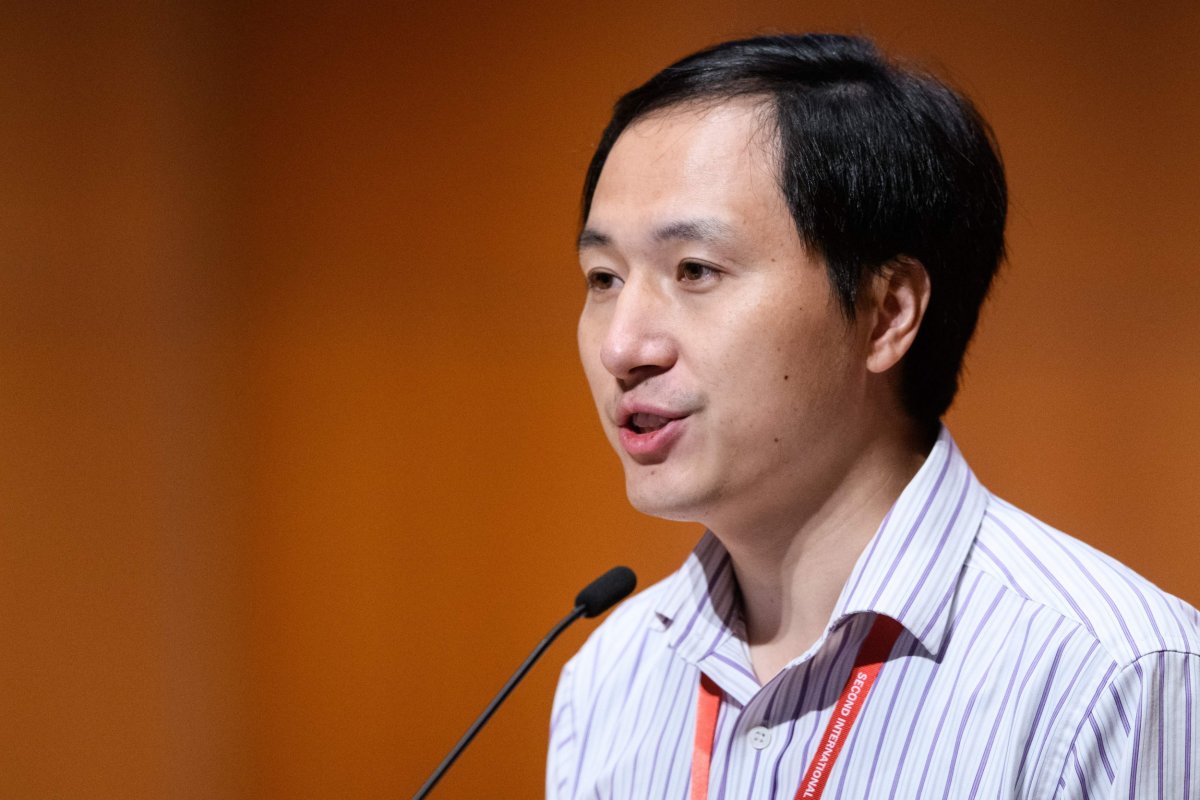An investigation by authorities in China has concluded that a scientist in the country did create the world's first gene-edited babies.
According to a report in China's Xinhua news agency, He Jiankui performed human embryo gene-editing activities despite them being "officially banned in the country." The report said He, along with the other researchers involved, would be punished in accordance with the law. The case has now been handed over to the Ministry of Public Security.
He, an associate professor at the Southern University of Science and Technology in the Guangdong province, announced the world's first gene-edited babies at the Second International Summit on Human Genome Editing in Hong Kong in November last year. He said he had altered the DNA of seven human embryos to make them more resistant to HIV and that this experiment had resulted in the birth of twin girls.
He was condemned by scientists across the globe, who said the experiments were unethical and dangerous. Many critics said there was no way of knowing the long-term effects of gene editing. Furthermore, He did not provide evidence showing exactly what he had done, meaning his peers could not review the work he had carried out—a hallmark of scientific research.
His claims were also denounced by Chinese authorities, which suspended He's research activities and launched an investigation into the claims. According to Xinhua, the government said the experiments were "extremely abominable" and that they were in direct violation of the laws and ethics of the country. He was reportedly placed in a government-owned apartment, possibly under some form of house arrest.
According to the South China Morning Post, the report into He's activities show he had "organized a project team that included foreign staff, which intentionally avoided surveillance and used technology of uncertain safety and effectiveness to perform human embryo gene-editing activity with the purpose of reproduction, which is officially banned in the country."
Xinhua claims He self-funded the experiment in pursuit of "personal fame and fortune" and forged ethical review papers to push ahead with the work. He recruited eight couples for the experiment. This resulted in two pregnancies, with the six other couples withdrawing from He's program. Support is currently being provided to the families of the babies involved.
"This behavior seriously violates ethics and scientific research integrity, and seriously violates relevant state regulations," Xinhua said. "The relevant person in charge of the investigation team said that He Jiankui and the personnel and institutions involved will be dealt with seriously according to the law."
Earlier this month, one of He's colleagues told the U.K.'s Telegraph that the scientist could face the death penalty if the state brings charges of corruption and bribery against him. Robin Lovell-Badge, from London's Francis Crick Institute, told the newspaper, "There is an official investigation led by the ministries of science and health. Lots of people are probably going to lose their jobs. He wasn't the only one involved in this, obviously. So how has he got them to do all this work? He could be had up on all sorts of charges of corruption, and being guilty of corruption in China these days is not something you want to be. Quite a few people have lost their heads for corruption."
In an email to Lovell-Badge following the death penalty reports, He said that contrary to many reports, he was "actually doing well."

Uncommon Knowledge
Newsweek is committed to challenging conventional wisdom and finding connections in the search for common ground.
Newsweek is committed to challenging conventional wisdom and finding connections in the search for common ground.
About the writer
Hannah Osborne is Nesweek's Science Editor, based in London, UK. Hannah joined Newsweek in 2017 from IBTimes UK. She is ... Read more
To read how Newsweek uses AI as a newsroom tool, Click here.








